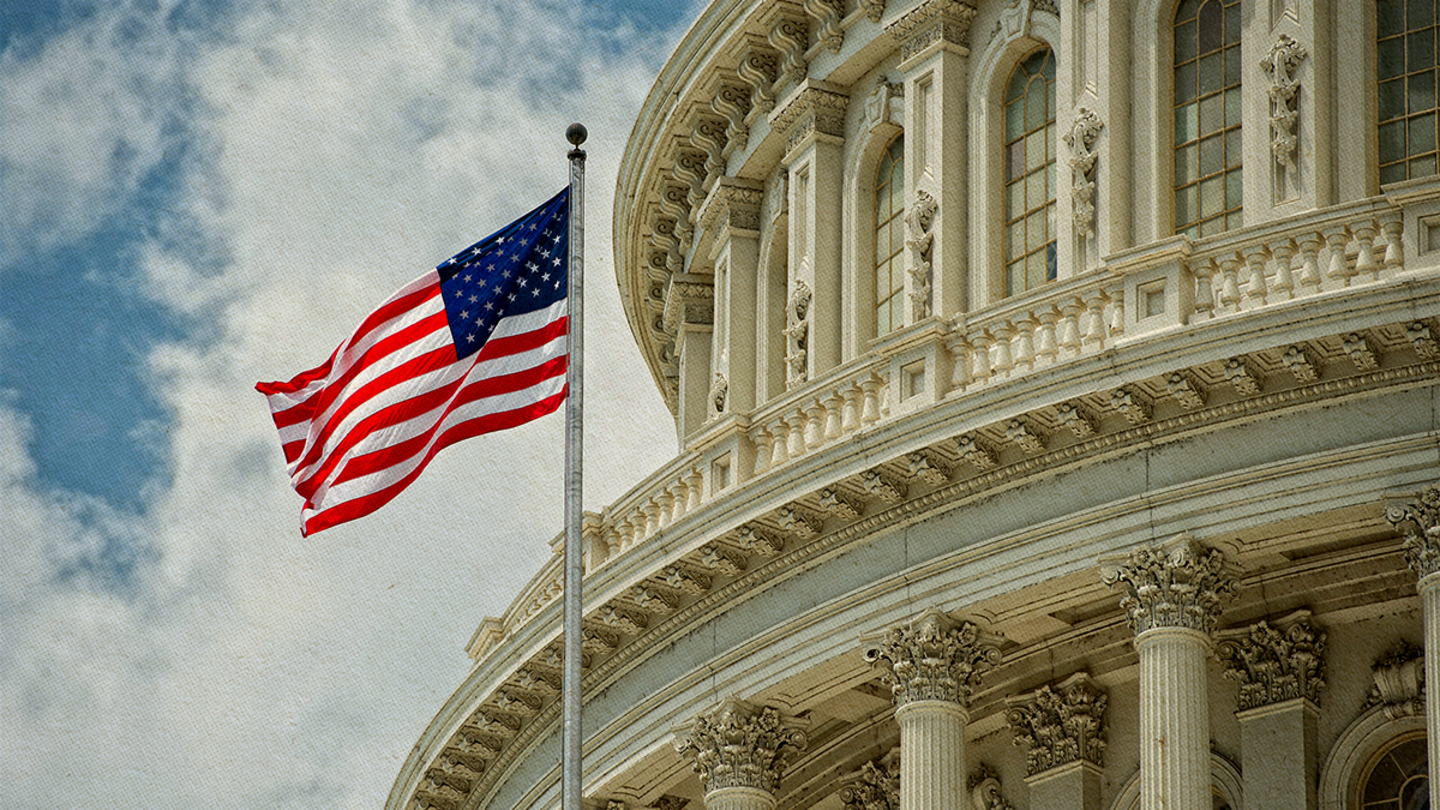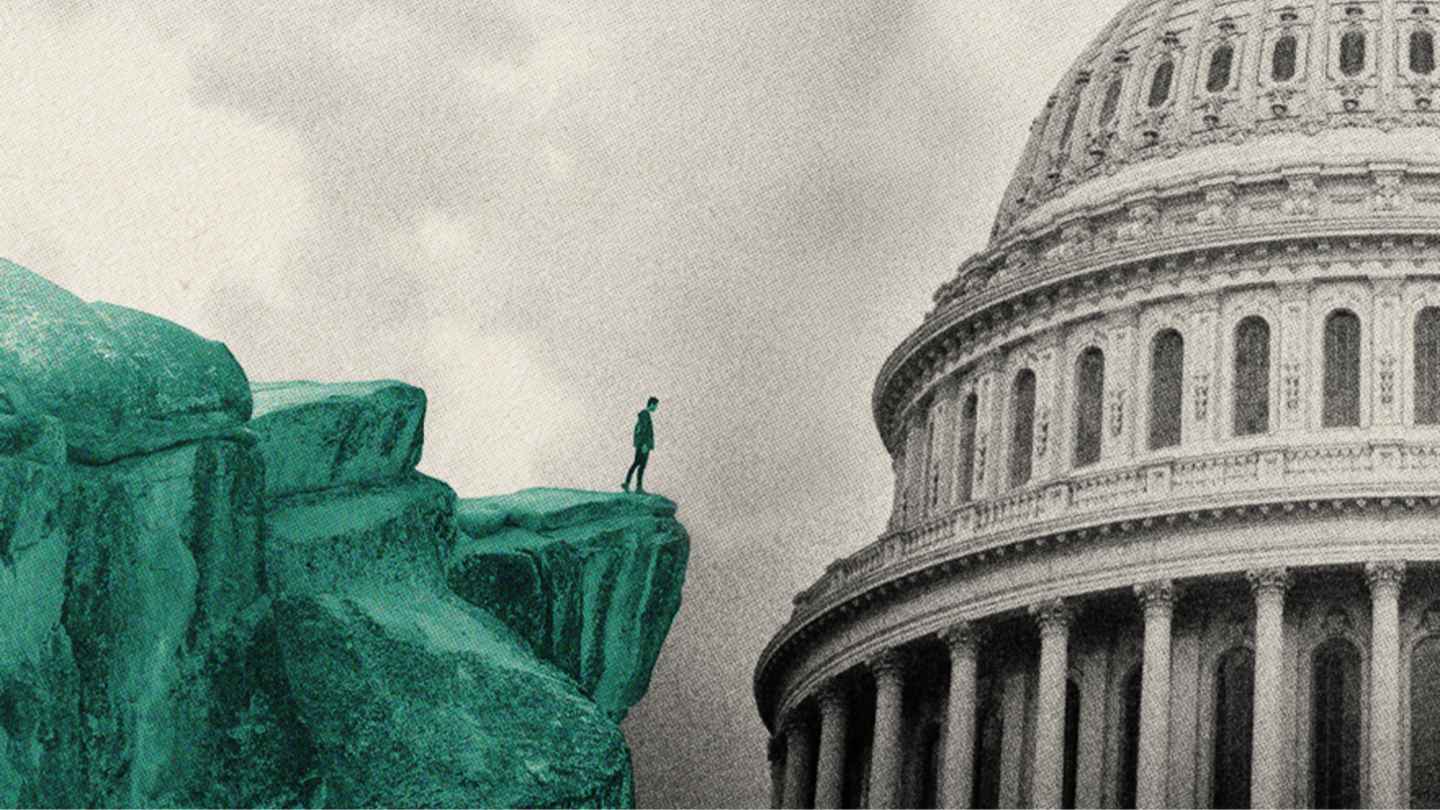Americans are feeling the pinch of tight budgets and economic strain.
“Government spending has exploded in recent years,” said Matthew Dickerson, the director of budget policy at the Economic Policy Innovation Center (EPIC). “This reckless spending has caused inflation to spike to the highest rates seen in decades, making families worse off as wages are unable to keep up with the rising prices of gas and groceries. At the same time, the economy is missing 2.3 million workers compared to before the COVID-19 pandemic.”
Americans deserve common-sense economic solutions that reward their hard work, deliver a path to financial security, and keep the American dream alive. Despite the distractions of a turbulent election year, lawmakers can't afford to only offer short-term solutions to these economic concerns.
A looming fiscal cliff — a circumstance when a particular set of financial factors causes or threatens sudden and severe economic decline — is on the horizon and is bigger than some that America has experienced in recent decades. The size of this cliff has experts collaborating — even across ideological lines — to help prevent an economic catastrophe that could impact the lives of Americans for generations to come.
“The U.S. cannot forever defy the laws of economic gravity,” wrote Paul Ryan, distinguished visiting fellow in the practice of public policy at the American Enterprise Institute (AEI) and former speaker of the House of Representatives. “The U.S. has run up large budget deficits and debts in the past, but those moments of national emergency, such as world wars and global financial crises, were usually — at least until recently — followed by periods of fiscal repair.”
Instead of handwringing, Ryan — whose words come from the introduction of the American Renewal, a project initiated by AEI — and other experts are fostering debate and inspiring policy solutions from a position of optimism, describing themselves as “authors of a great new chapter in the remarkable American story.”
AEI, alongside groups like Bipartisan Policy Center, Cato Institute, Committee for a Responsible Federal Budget, EPIC, the Mercatus Center at George Mason University, and National Taxpayers Union, all partners of Stand Together Trust, are working together and leveraging their diverse capabilities to make sure policymakers are informed of realistic, long-term economic policy solutions so that all citizens have the opportunity for financial security and the American Dream.
“In spite of our different perspectives, one thing we all agree about is the scale of the fiscal problem that this country faces,” said Veronique de Rugy, George Gibbs Chair in political economy and senior research fellow at the Mercatus Center. “We also understand that we can’t continue doing what we’ve been doing. All of us had been working on solutions to fix the federal budget problem for years, but we were working separately. We had to try a new approach and start working together.”
What is the fiscal cliff?
It could be tempting for some Americans to shrug their shoulders and point out that the federal debt has been outrageously large for years, what’s a little more? However, this fiscal cliff is not like others.
In 2025, a perfect storm of financial factors could produce an additional $5 trillion of federal debt — that’s five times the amount of the 2009 stimulus bill passed during the Great Recession. Five trillion is also the amount of debt that the United States accumulated between the founding of our nation to Bill Clinton’s presidency — roughly 220 years.
Increases in spending are not unprecedented in times like wars or pandemics. However, what’s expected to happen in 2025 is a product of years of spending in Congress without considering how it will impact citizens now and in the future.
According to former Treasury Secretary Jacob Lew, if America defaults on its debt, the national and global impact could result in increased borrowing costs for businesses and homeowners, decline in consumer confidence, and an almost certain recession. Further, removing spending caps means Congress could continue recklessly adding to America’s debt — which, if the $5 trillion is added, will spike to $39 trillion.
Some other financial events of 2025 could impact citizens immediately, too.
Taxpayers could see big tax hikes, because much of the Tax Cuts and Jobs Act (TCJA) will expire at the end of 2025, explained Brandon Arnold, executive vice president of National Taxpayers Union, citing the Tax Foundation. “This would be a crushing blow to so many families and businesses that are struggling to get by,” Arnold continued. “While critics of the TCJA claim it only benefits the wealthy, everyday Americans at nearly all income levels could experience hefty tax hikes. Additionally, economic growth would take a substantial hit, resulting in fewer jobs and lower wages.”
Americans are already dealing with tightened budgets because of inflation. Higher taxes will only add to the already significant financial struggles of the average American.
Then, there’s the expected impact from COVID-19 support offered to states and local governments. The Coronavirus State and Local Fiscal Recovery Funds program gave $350 billion to state and local governments as part of the pandemic recovery effort, to be spent by 2024. However, as of November 2023, $109 billion had not been allocated, and the Biden Administration issued a new rule that simply required states to say by April 2024 how they intended to use the funds despite this not being the explicit intent of Congress.
“Congressional spending habits surrounding emergencies are a prime example of fiscal irresponsibility, with Congress repeatedly abusing emergency designations to circumvent budget limits and spend wastefully,” said Romina Boccia, director of budget and entitlement spending at Cato Institute. “Congress should adopt robust fiscal guardrails, offset new deficit spending, including for emergencies, and establish a well-designed bipartisan fiscal commission to stabilize the debt and reform old-age benefit programs. This will send a strong signal to investors that the U.S. is serious about avoiding fiscal catastrophe and put us back on the right track.”
Sign up for the Stand Together newsletter and get stories, ideas, and advice from changemakers to help you tackle America’s biggest problems.

What are the solutions being proposed?
There is no silver bullet for fixing a dire budget situation that’s been decades in the making, but ideas have been proposed that would drastically improve our nation’s finances.
Cutting spending is an obvious solution to any debt crisis. But how does the government identify wasteful spending?
The Identifying and Eliminating Wasteful Programs Act, endorsed by the National Taxpayers Union Foundation, has a solution. The bill requires each federal agency to identify unnecessary programs through a criterion of “wasteful” spending:
- It is unnecessary, defunct, or unnecessarily duplicative of other federal programs;
- Another agency could administer the program more effectively; or,
- It could operate more effectively if the program or activity were consolidated with other programs or activities.
The agencies would submit their list annually. Legislation would still need to be proposed and moved for programs to be cut from spending, but this would enable Congress to more effectively identify areas ripe for reform.
Of course, finding agreement between parties about problems and solutions is a big hurdle to cross. So, lawmakers, with encouragement from groups like the Committee for a Responsible Federal Budget, have worked to establish bipartisan working groups that will foster serious conversations about solutions to the looming fiscal crisis.
In the House, Reps. Bill Huizenga of Michigan and Scott Peters of California proposed the formation of a Bipartisan Fiscal Forum. In the Senate, Sens. Joe Manchin of West Virginia and Mitt Romney of Utah proposed the Fiscal Stability Act, a bill with similar bipartisan aims. The bipartisan collaboration has attracted diverse participation in Congress and support from policy influencers.
“Establishing a commission won’t solve these problems. But it will give policymakers the opportunity to at least discuss them seriously, and hopefully identify policy solutions that Congress can then enact into law,” said Maya MacGuineas, president of the Committee for Responsible Federal Budget. “Commissions have worked in the past, and a new commission is probably our best current hope for curing our fiscal woes,” MacGuineas continued.
Think of a commission as a working group, where lawmakers with specific expertise and dedication can vet and refine ideas.
Consider the complexity of tax reform. The U.S. Treasury and Joint Committee of Taxation utilize more than one official list of tax expenditures. This inconsistency allows for many loopholes and makes it difficult for policymakers to pursue effective tax reform. Cato Institute has a thorough explanation of the flaws in the official lists and recommendations for reform to be undertaken by the Treasury, Joint Committee of Taxation, and Congress. Analyzing and translating these sorts of solutions for other members is precisely the sort of service a bipartisan commission can offer.
“Policy reform is a team sport. Solutions need to be communicated to a variety of stakeholders — voters, elected officials, journalists, trade associations, business leaders — to get the broad support necessary to change policy,” explained Adam Millsap, senior fellow working on economic issues at Stand Together Trust.
Individuals' decisions to work harder aren't easily alleviating the financial struggles of everyday Americans. America is facing a scenario where citizens' flourishing depends on good decision-making by policymakers.
“That’s why the collaboration between these groups is so important. When we share knowledge and challenge each other’s ideas we improve our chance of success, which in this case means budget reforms that put our country’s finances on a sustainable path,” Millsap concluded.
***
American Enterprise Institute (AEI), Bipartisan Policy Center, Cato Institute, Committee for a Responsible Federal Budget, Economic Policy Innovation Center (EPIC), Mercatus Center at George Mason University, and National Taxpayers Union are supported by Stand Together Trust, which provides funding and strategic capabilities to innovators, scholars, and social entrepreneurs to develop new and better ways to tackle America’s biggest problems.
Learn more about Stand Together’s efforts to make the economy work for all and explore ways you can partner with us.

Here are some issues the Department of Government Efficiency could target.

Only by using AI in real-world scenarios can we understand its capacity to address complex challenges

Credit scores don’t reflect the whole person. Here’s one way to change the narrative.

Fear of change is nothing new, but how we respond to this moment really matters.
